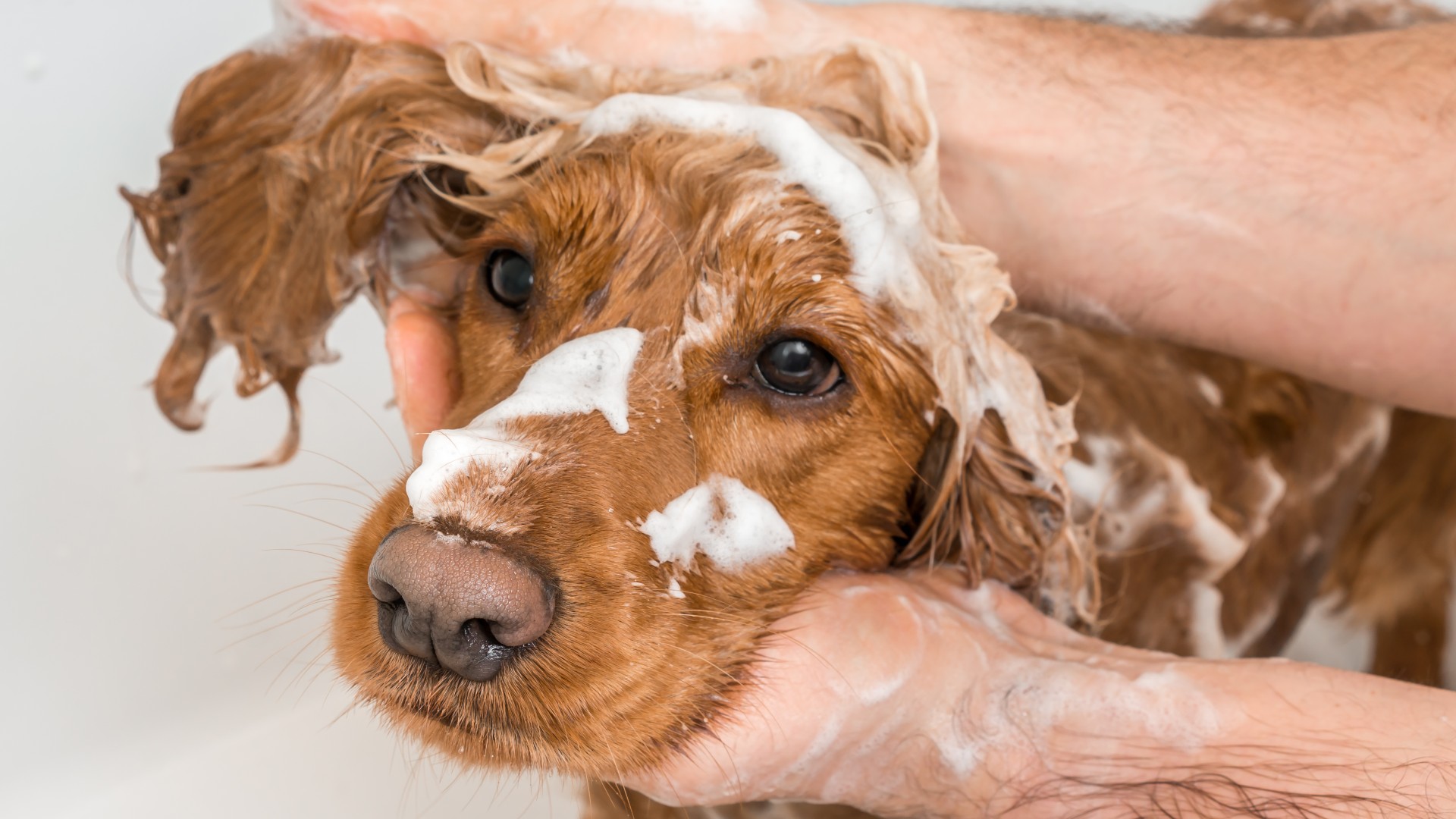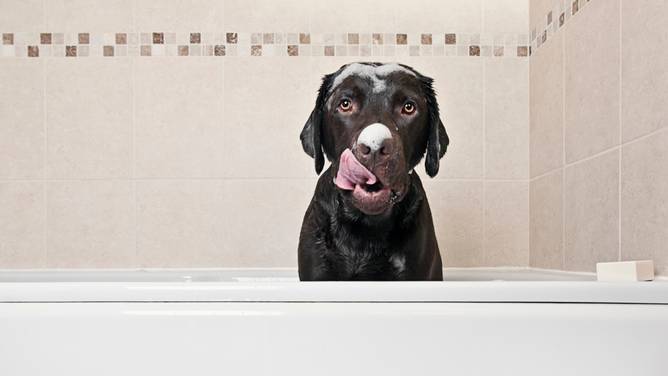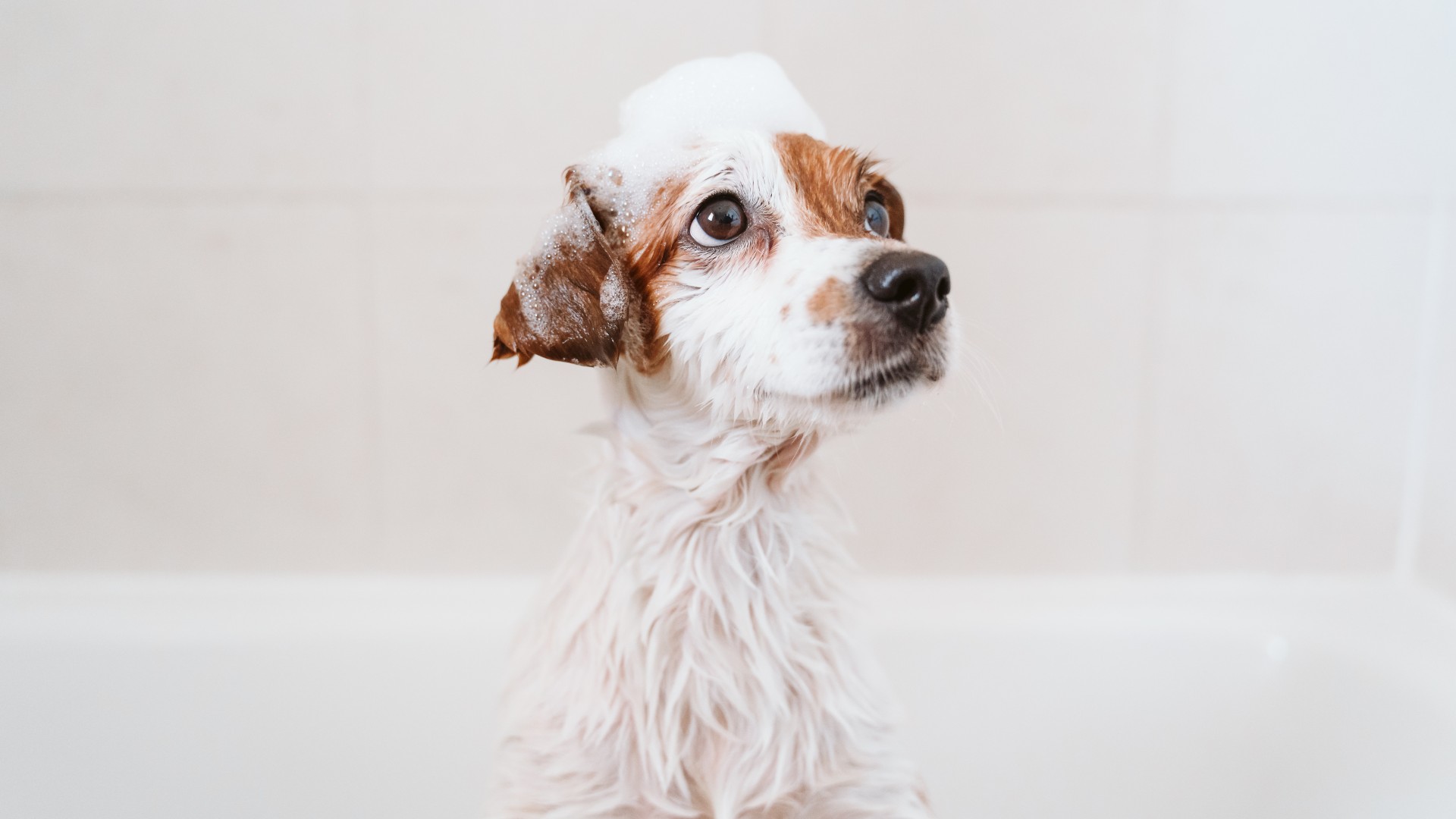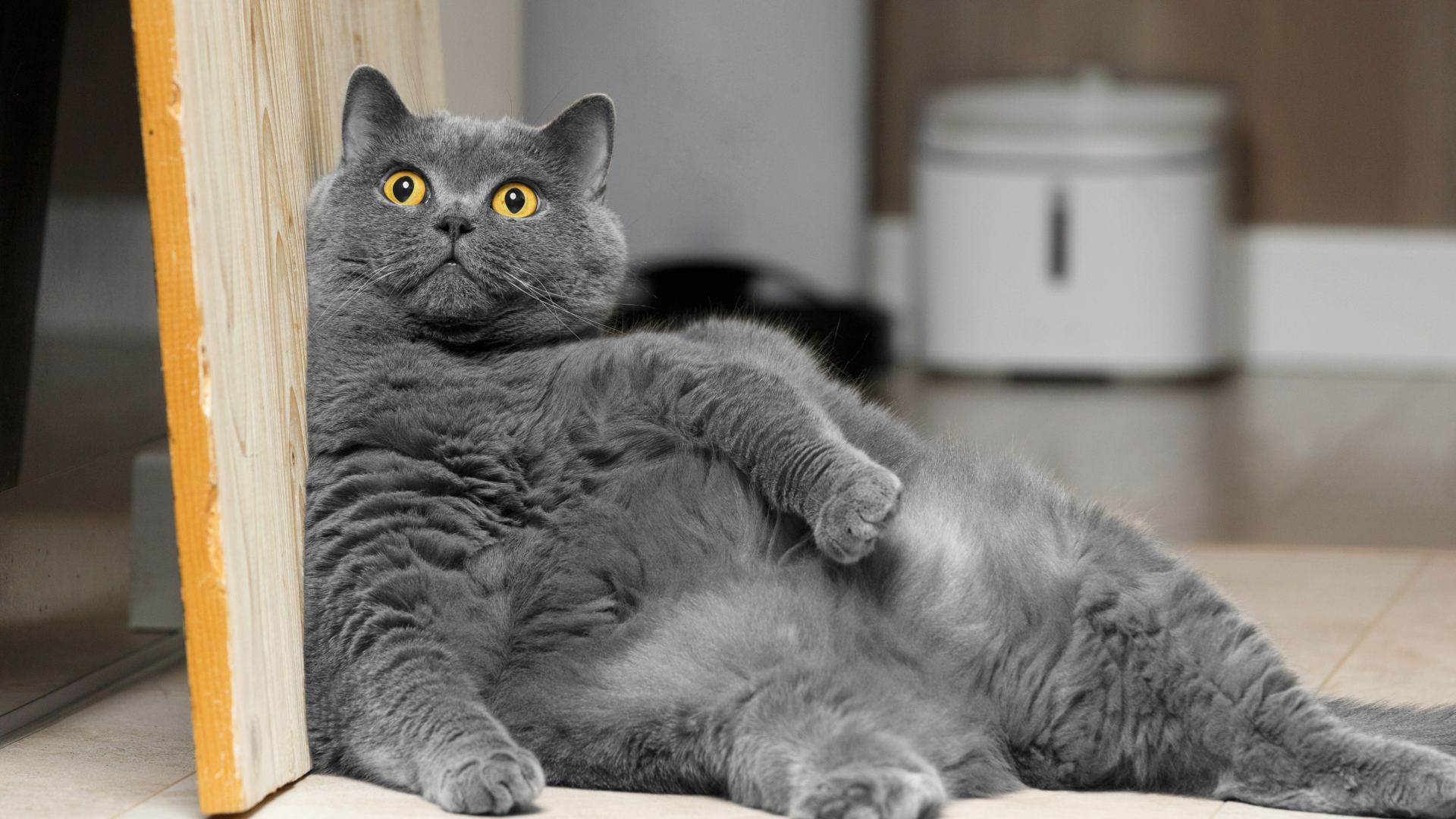Can you use human shampoo on a dog?
Wondering, ‘can you use human shampoo on a dog?’ We reveal the safest dog shampoo alternatives

Can you use human shampoo on a dog? If your canine companion is in desperate need of a bath after a particularly muddy walk and you don’t have any doggy shampoo on hand, you may be tempted to crack open your own shampoo bottle thinking it won’t do any harm.
It’s easy to fall into the trap of thinking all shampoos are created equal, especially when you have a stinky canine emergency on your hands, but according to Dr. Joanna Woodnutt, it's important that you stick to the best dog shampoo and avoid lathering your pup up with products designed for humans.
"It’s best not to use human shampoo on a dog," Woodnutt says. "Human skin is more acidic than canine skin, so the shampoos are balanced to take this into account. Canine skin is also thinner than human skin, meaning it’s more prone to damage by harsh shampoos and is generally more sensitive."
That’s why a good dog shampoo should always be your number one choice when bathing your dog. Specifically formulated to suit the coat and skin of your fur friend, dog shampoos come in a range of different types to suit the needs of every breed.
Below, we reveal our favorite DIY dog shampoo alternatives for those times when you’re in a pinch and reveal how often you should bathe your dog. Check out our guide to the best dog conditioner or keep reading to find out everything you need to know to make bath times a safe experience for your canine companion.

Dr Joanna Woodnutt qualified as a veterinarian from the University of Nottingham where she then went on to practice companion animal medicine in the Midlands. She really took to the consulting side of things and helping clients with medical problems such as dermatology, behaviour and nutrition - anything that involved helping clients understand their pets better.
Can you use human shampoo on a dog?
Human shampoo is unlikely to cause harm to your dog if you've accidently applied it as a one-off, but it's important to note that it's not a long-term solution.
This is because a dog's skin is made up of several delicate layers that can be damaged by chemicals that have a different acidity level. Dogs have different pH levels to humans, meaning human shampoo is far too harsh for your pup.
While human skin typically has a pH balance of between 5.5 and 5.6, it's normal for your canine friend to have a normal pH balance of between 6.2 and 7.4; typically more neutral than acidic.
Using human shampoo on dogs can disrupt the outer layer of skin called the acid mantle that protects their body from nasty organisms such as bacteria, viruses, and yeasts.

Can you use baby shampoo on dogs?
Can you use baby shampoo on dogs? According to Woodnutt, it's best not to. "Although baby shampoo is the gentlest human shampoo out there, it still isn’t ideal for dogs," she explains. "It’s still too acidic for canine skin and, over time, is likely to cause problems. Having said that, if your dog has rolled in something disgusting and you’re out of doggy shampoo, a one-off wash with baby shampoo will be safe for most dogs."
If you choose to use baby shampoo, opt for one that is unscented and clear without any added colors or fragrances.
What can I use if I don't have dog shampoo? 6 DIY dog shampoo alternatives
Whether you've forgotten a few essential pet supplies or fancy trying out an all-natural solution, there are a few DIY dog shampoo alternatives you can try.
Whilst they may not replace a good home shampoo session in your bath, these homemade solutions can work well for an instant freshen-up.

1. Pet wipes
Wipes are growing in popularity in the pet world thanks to their convenience and ease of use. Especially if your dog hates baths and only has light dirt or dust on its coat, a pet wipe will remove any surface dirt without resorting to a trip to the bathtub. They're particularly handy for wiping down small areas, such as muddy paws, but are not effective for providing a deep cleanse.
2. Castile soap
Castile soap is typically free of chemicals and provides a good pH balance on your dog's skin. It can work on canines with sensitive skin and contains no fragrances that could potentially cause irritation.
Some pet owners create their own homemade dog shampoo using Castile soap and other common ingredients found around the home.
3. Baking soda
Another common ingredient found in homemade dog shampoo is baking soda. It can applied direct into your dog’s coat, but it can be dry, so you may look to mix it with oatmeal and water. Simply mix one cup of oatmeal with half a cup of baking soda and warm, not boiling, water.
4. Vinegar and water
For a light clean-up, you can combine water and vinegar together for a handy spritz. Combine equal parts of either white vinegar or ACV plus filtered or distilled water into a spray bottle and shake to blend.
5. Cornstarch
A handy substitution for dry dog shampoo is cornstarch, which is commonly found in most kitchen cupboards. Shake it over their coats to freshen up your pooch and work the powder into their fur for best results. You can pull out any excess powder with a grooming comb or brush.
6. Baby shampoo
While not ideal, using baby shampoo on your dog one-off is unlikely to do any harm to your pet. This is because it's considered to be gentler than other human shampoos due to containing fewer ingredients and minimal perfumes. Therefore, it can be used in emergency but shouldn't be used repeatedly.

Can I use Dawn dish soap to wash my dog?
Dawn dish soap is frequently cited as a way to kill fleas on pets, which might be why you're wondering whether it can act like a shampoo too. According to Woodnutt, it's important that you don't use Dawn dish soap to bathe your dog.
"Although Dawn is often recommended as an alternative to dog shampoo, especially when there are fleas, it’s not a good solution," she explains. "It’s incredibly drying and not the right pH for the skin. It will strip the skin and fur of the protective natural oils and disrupt the skin barrier. The skin has its own microbiome – just like the gut – full of healthy bacteria and yeasts living in harmony with your dog. Dawn can disrupt this natural flora and increase the likelihood of skin infections from overgrowth of bad bacteria and yeasts."
How often should you wash your dog?
How often should I bathe my dog is a question you may have found yourself asking on more than one occasion. Let's face it, dogs get pretty smelly so it can be tempting to bathe your dog on a frequent basis but doing so can actually dry out their skin or even cause skin disorders. Bathing too regularly can also interfere with any existing skin and worming treatments your dog is using.
According to Woodnutt, how often you should bathe your dog depends on their coat, how mucky they get and any allergies they have. "In general, most short-coated dogs get away with being bathed no more than once a month. Longer-coated or curly-coated dogs might need bathing more regularly than this as part of a grooming regimen," she explains.
"Some dogs with allergies will need to be bathed twice a week or more. While this isn’t a good idea for most dogs (it will dry out the skin and cause problems!) it can be really soothing for allergic dogs, especially when a medicated shampoo is used."
PetsRadar Newsletter
Get the best advice, tips and top tech for your beloved Pets

Ashleigh is Digital Editor on PetsRadar. With over 8 years of experience in print and digital media, she has acted as an editorial lead on a variety of projects, with animal themes a keen interest. As an avid animal lover, you can often find Ashleigh checking out the newest trends in animal care or looking at cute cat videos on TikTok.
